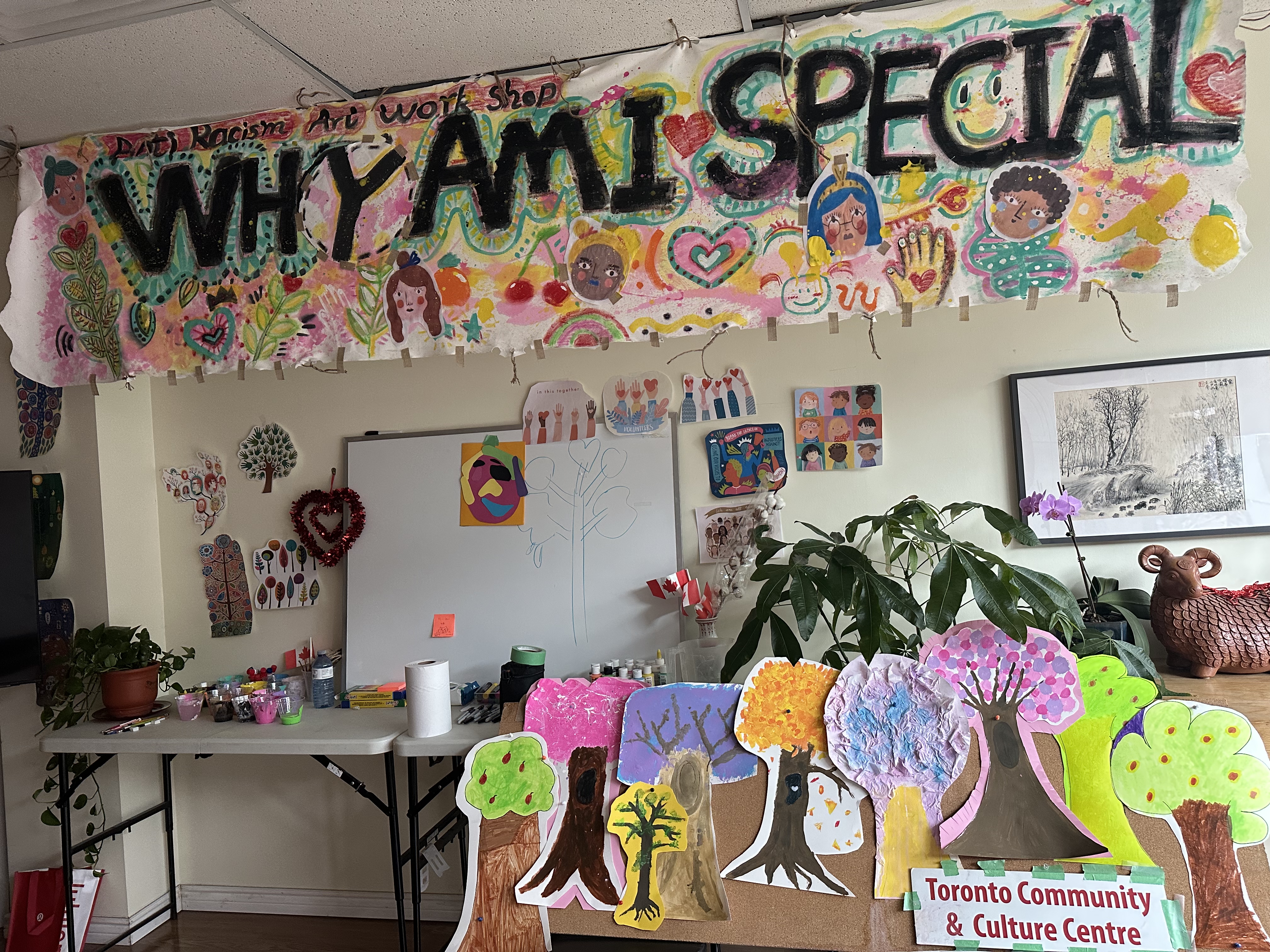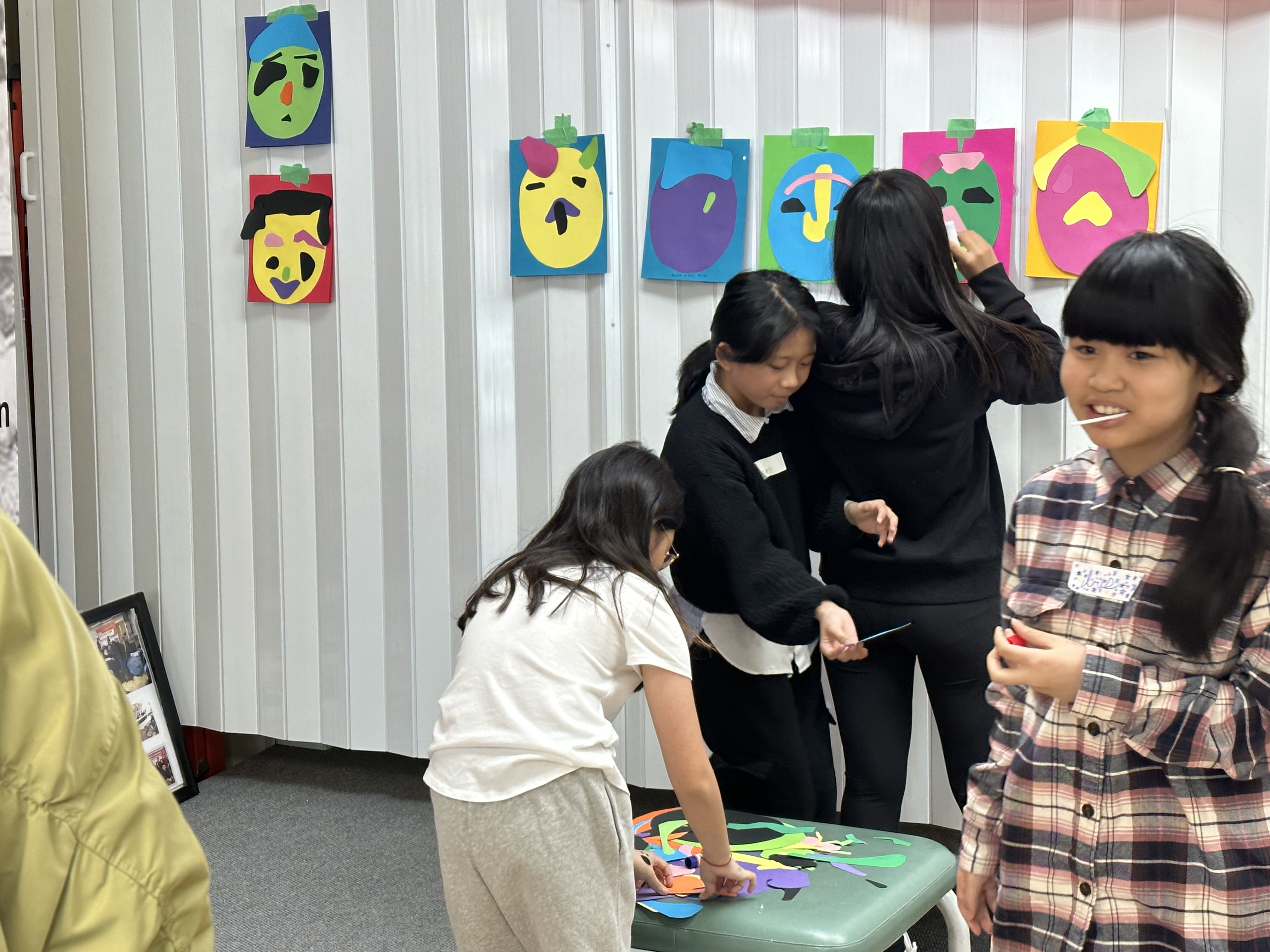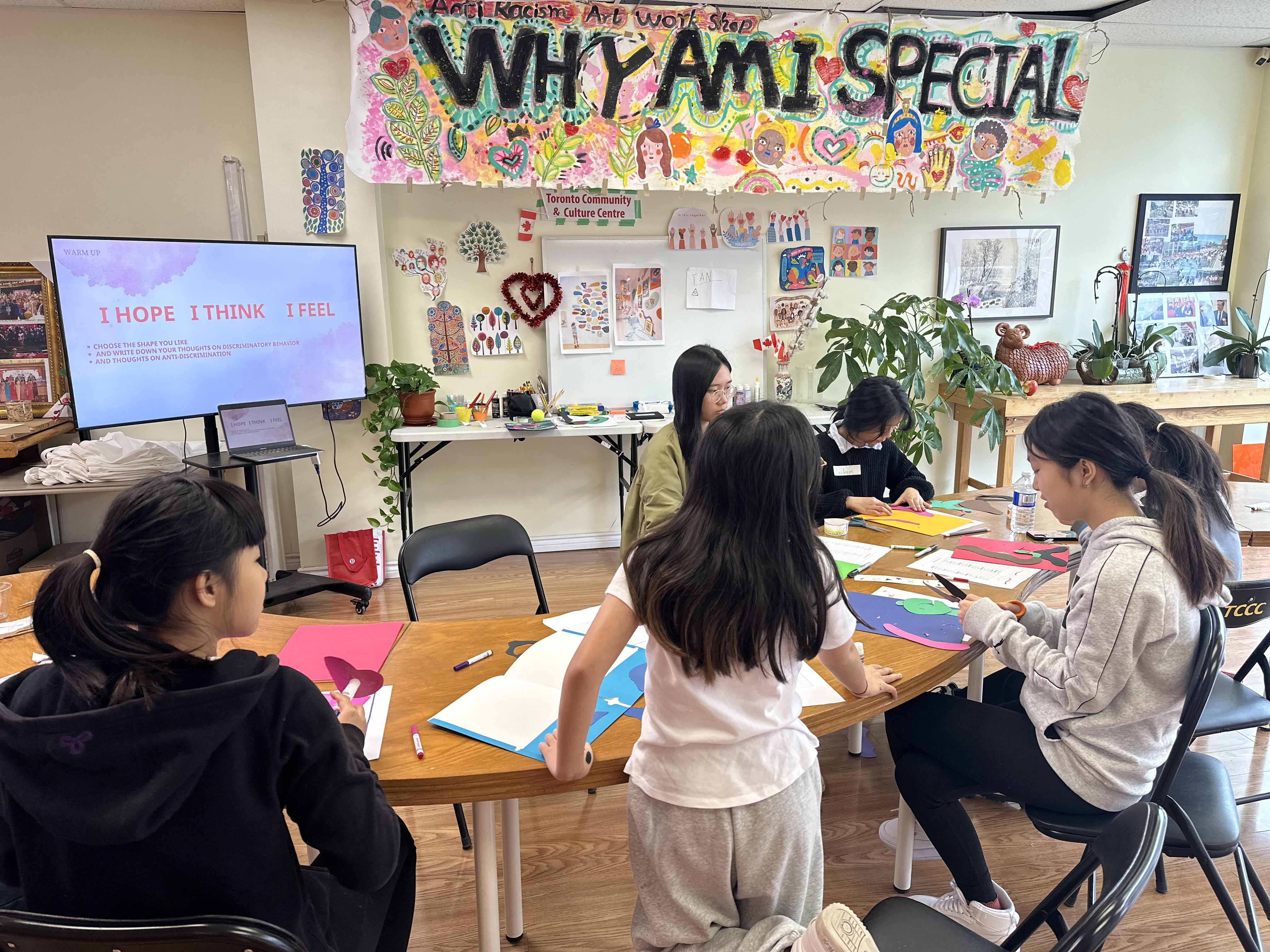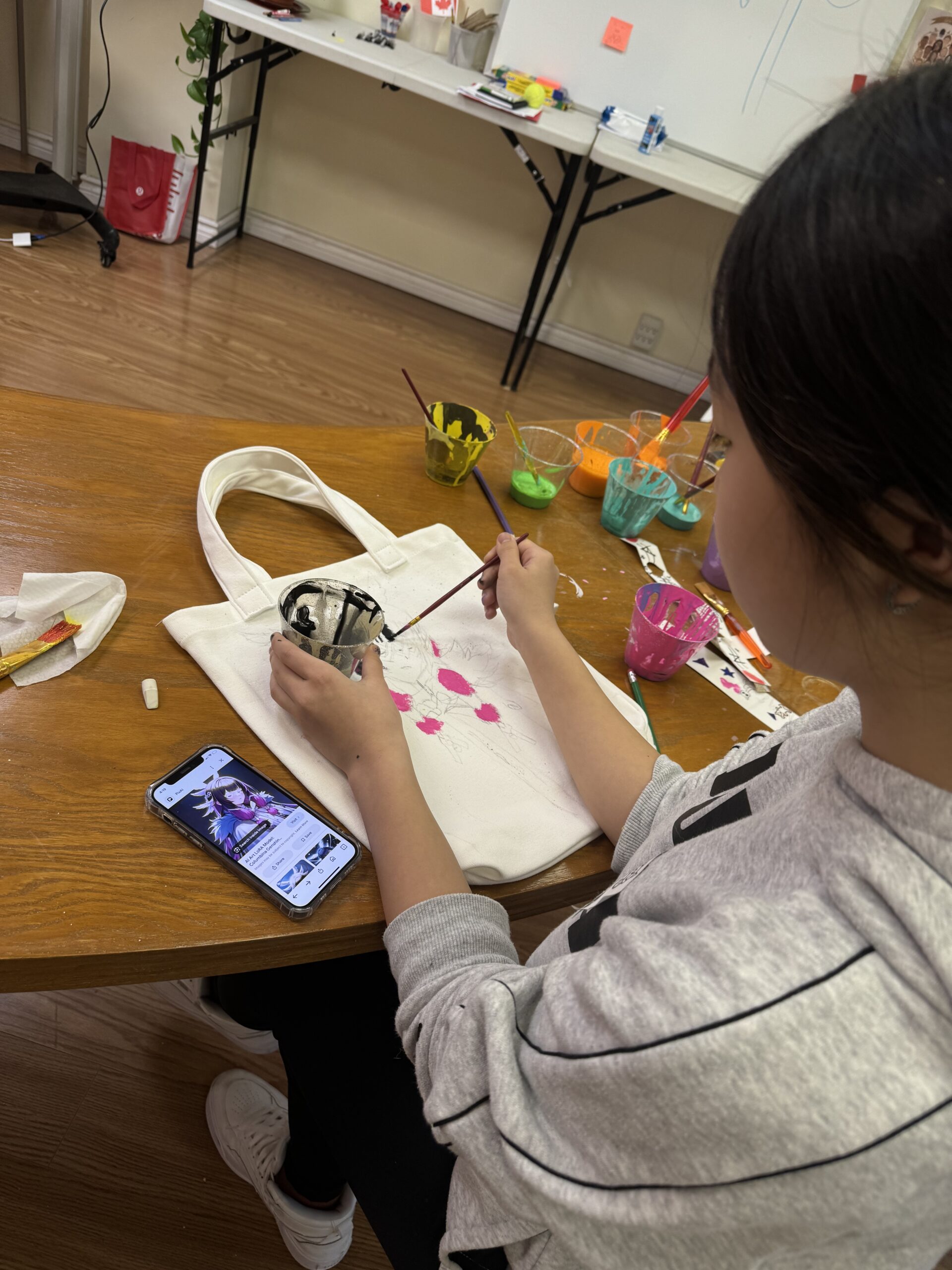
Even in a country as multicultural as Canada, racial discrimination is still a problem. There are existing and worrying issues. Although Canada is considered a country that accommodates multiculturalism, ethnic minorities still feel challenged when facing racial discrimination. This kind of discrimination does not only affect adults but also deeply affects the lives of racialized youth. Therefore, the fight against discrimination must start in childhood to cultivate a more inclusive and just society.

On March 15, the Toronto Community & Cultural Centre held a series of “Why am I Special” events, focusing on educating young people about how to start fighting against racial discrimination. This project is funded by the Canadian federal government. These activities are unique and combine creative artwork with anti-discrimination. Aspects of art therapy were used in the design of the activities.

The theme of the activity is “Why am I special?” and aims to teach youth that their worth should not be determined by other people’s opinions. It is not easy to define but should be derived from their unique characteristics. Such activities help children build a sense of self-worth from an early age as well as helping children understand their own cultural identity and enhance cultural self-confidence. Moreover, these activities are not just for Asian youth but apply to youth of all races and cultural minorities.

This is the case in Canada where we live in a multicultural country with different races and diverse cultures. Therefore, children need to actively ground themselves from an early age. Only by learning to integrate with different races and cultures, can they integrate into the diversity of Canadian culture and different lifestyles.

Through the art form of painting, children were taught a preliminary understanding of racial discrimination. They learned how to identify discrimination in real life, and the forms and behavior’s it can take. These activities also teach children about how to deal with discrimination in real life and how to protect themselves.

The children also participated in many creative activities such as painting a large tree as a symbol of stability and decorating a tote bag with anti-racist symbols and artwork to collect and organize their anti-discrimination creations, as well as related materials and visions for the future.

Adolescence is a critical period for the formation of individuals’ cognition and values. If young people are discriminated against at this stage, it could have a profound impact on future behaviour and social perceptions. Racial discrimination exists in schools and communities across Canada, As a result, adolescents may face mental health problems, academic challenges, and social exclusion. This can further cause them to lose self-confidence and affect their development and achievements. Therefore, schools and communities should provide support and resources so that adolescents can learn how to correctly face anti-discrimination from an early age. These resources help young people feel that they are not alone and that someone can listen and help them.

In addition, all sectors of society should also carry out extensive anti-racial discrimination education through various channels to promote cultural integration and inclusiveness and work together to create a just and inclusive environment. Everyone should be aware of how their words and actions impact others. Only when we teach the concepts of respect and tolerance from childhood can we establish a truly equal and just society.

Most importantly, combating racial discrimination requires the efforts of the entire society.
Families, schools, governments and communities should work together to face this problem with a positive attitude and strive to create a society without discrimination so that everyone can live in equality.
What are human rights?
Human rights are rights and interests that are guaranteed by law .
What is discrimination?
Discrimination is based on race, colour, sex, age, status, religion, politics, language, ancestry or national origin. Any act of being distinguished, segregated or favoured on account of social status and which has harmed or negated the above-mentioned human rights.
SAY NO TO RACISM
Human Rights Complaints Procedure
- Request to meet with a human rights officer.
- Briefly explain to the human rights officer the specific content of the discrimination you believe you have suffered.
- If your complaint falls within the jurisdiction of human rights law, the human rights officer will give you a questionnaire to fill in the relevant information about the complaint.
- When the Human Rights Officer receives your questionnaire, your complaint will be drafted in case order.
- Your case will be registered and an assigned investigator will notify you when the complaint will be processed.
- The respondent will also receive a copy of the charges at the same time and be required to respond to your charges in writing within three weeks.
- The Human Rights Officer will notify you to check the respondent’s answer.
- If necessary, convene a “fact-finding meeting”.
- Under the Human Rights Act 1981, the Human Rights Commission is required to conduct a fair investigation to determine the factual basis for the complaint.
Other appeal channels
Legal Aid Services
Community Service Centre
Professional and business groups
How to protect your human rights
Victims should submit a formal complaint to the relevant Human Rights Commission as soon as possible. The Canadian Human Rights Commission stipulates that the time limit for accepting complaints is one year after the case occurs. If a case has been submitted to the Human Rights Commission as a registered complaint, the Human Rights Commission will still accept the case according to procedures even if the one-year appeal period has expired after the completion of other complaint procedures.
The Toronto Community & Culture Centre (TCCC) was established in 1995, and registered as a charitable organization in 1998. Since 1995, TCCC has been funding provides placement services, social projects and senior internship programs. There are many outreach activities organized within Canadian society. TCCC plans and hosts Canada Day celebrations, family activities, cultural exhibitions, international job fairs, Spring Festival performances and many outdoor activities every year. Over the years, many mainland Chinese immigrant volunteers have participated in and helped with our services and events. TCCC helps these newcomers gain valuable volunteer and work experience which helps them find jobs in Canada.








